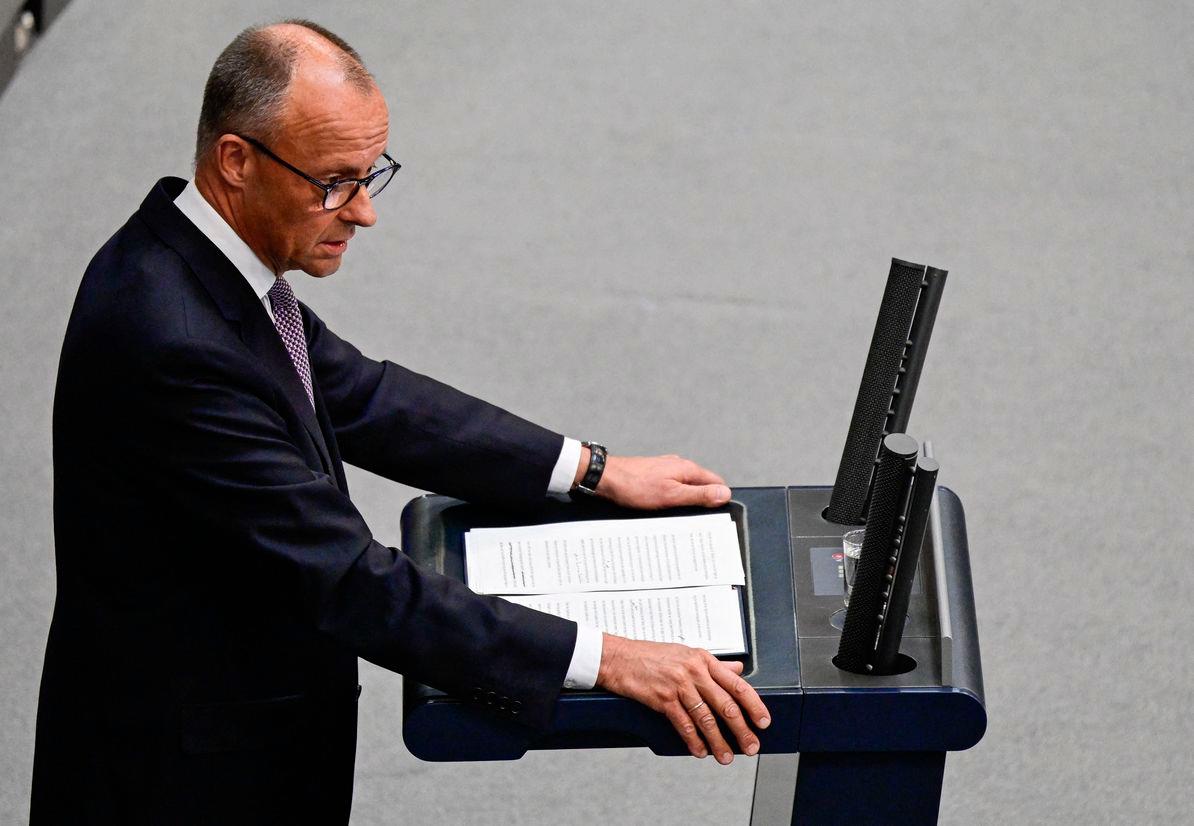BERLIN: German Chancellor Friedrich Merz insisted a pledge by NATO allies to boost defence spending at a “historic” summit starting on Tuesday would not just aim to please US President Donald Trump.
“We are not doing this, as some claim, to do the United States and its president a favour,“ he told the German parliament before setting off for the gathering in The Hague.
“We are doing this based on our own observations and convictions. Russia, above all, is actively and aggressively threatening security and freedom” across Europe, he added.
“We have to fear that Russia will continue its war beyond Ukraine.”
The summit has been viewed as heavily focused on keeping Trump happy after he made comments that sparked concern about Washington’s commitment to NATO and insisted that other member states spend at least five percent of their GDP on defence.
NATO’s 32 countries have thrashed out a compromise deal to dedicate 3.5 percent to core military spending by 2035, and 1.5 percent to broader security-related areas such as cybersecurity and infrastructure.
On Monday, Europe’s biggest economy revealed plans to reach the 3.5 percent level for core spending six years early -- in 2029 -- with the vast extra outlays necessary made possible after Germany eased its rules on taking on debt.
Defence Minister Boris Pistorius said on Tuesday that he would head to the NATO summit with the message that “external security and defence capability are once again an absolute priority in (German) government policy”.
“We are bringing about a historic turnaround in defence spending.”
On the summit, he said there were “good signs” about “the broad consensus on how to proceed... I see no reason to assume that we will be given the cold shoulder”.
Since taking office in May, Merz has been racing to build up Germany’s long-neglected armed forces, with the aim of turning them into the “strongest conventional army” in Europe -- a radical shift in a country with strong pacifist traditions due to its dark wartime past.
A drive has been launched to boost military personnel, which aims to attract 11,000 fresh recruits this year alone -- and Pistorius has suggested conscription, which was halted in Germany in 2011, could be reintroduced if too few people sign up voluntarily.
Germany is also building up a permanent military brigade in Lithuania -- the country’s first such overseas deployment since World War II -- to bolster NATO’s eastern flank against Russia.









